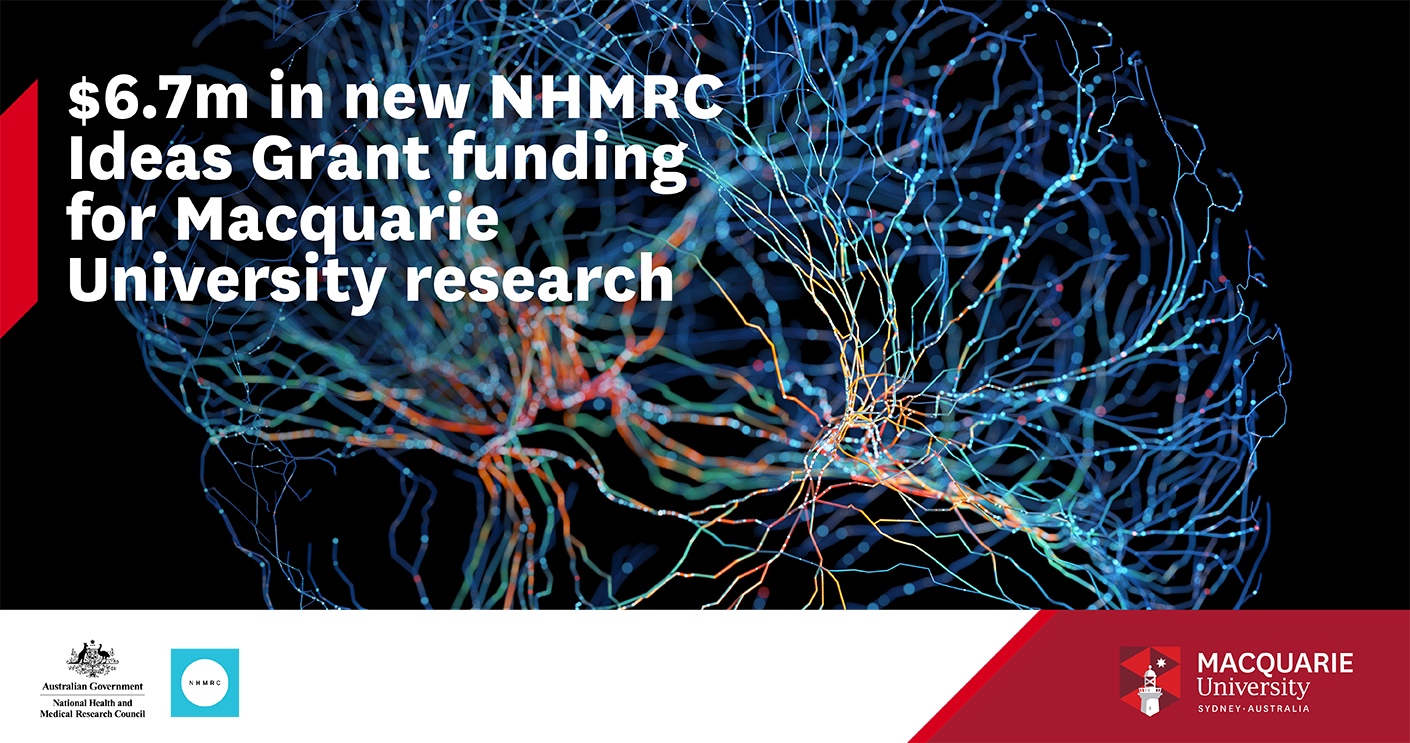Projects led by Macquarie University researchers have been awarded more than $6.7 million in the latest round of National Health and Medical Research Council (NHMRC) Ideas Grants.
Deputy Vice-Chancellor (Research) Professor Sakkie Pretorius says an impressive number of Macquarie’s applications in this round have been successful, with 20 per cent being funded.
“It is extremely gratifying to see the work of our world-leading researchers being recognised yet again through such significant grant funding,” he says.
“These are projects with the potential to make a difference to the lives of patients battling debilitating and life-threatening diseases, and they represent the tremendous breadth of research underway at Macquarie.”
Five of the grants go to projects led by researchers from the Faculty of Medicine, Health and Human Sciences, with the sixth from the Faculty of Science and Engineering.
- A team led by Professor Antonio Di Ieva from Macquarie Medical School, and including Dr Sidong Liu, Professor John Magnussen and Professor Benoit Liquet, receives $1,556,663. Their five-year project, ‘Computational analysis and artificial intelligence in brain tumour imaging: towards the augmented diagnostics of the future’, will aim to improve clinical outcomes by using computer models, including AI, to augment expert diagnosis of brain tumours.
- A team led by Professor Lars Ittner from Macquarie Medical School, and including Dr Julia van der Hoven, Dr Yuanyuan Deng and Dr Shelley Forrest, receives $1,212,345 for a four-year project on ‘Inhibition failure in Alzheimer’s disease’. The project will investigate how networks of neurones fail in the brains of people with dementia and will test new ways to prevent or treat the resulting losses.
- A team led by Associate Professor Vivek Gupta from Macquarie Medical School, and including Professor Stuart Graham and Associate Professor Mehdi Mirzaei, receives $1,186,771 over four years for a project titled ‘Let there be light – Modified Serpin as a Dual Function Therapeutic Agent in Glaucoma’. Glaucoma is one of the leading causes of blindness worldwide. Professor Gupta’s team has engineered a protease inhibitor to protect the cells in the retina, and the funding will allow them to test its effectiveness when delivered direct to retinal cells using an ‘artificial virus’ approach.
- A team led by Dr Shelley Forrest from Macquarie Medical School, and including Dr Annika van Hummel, receives $1,025,253 for a three-year project on ‘Understanding neurodegeneration caused by oligodendroglial dysfunction’. It will investigate globular glial tauopathy, a debilitating form of early-onset dementia, which shows abnormal tau proteins in oligodendroglia, the main support cells for neurones. While previous research has focused on the neurones, this study will investigate the effect of dysfunction in the oligodendroglia.
- A team led by Dr Christina Perry from the School of Psychological Sciences receives $876,991.56 for a project titled ‘Incubation of craving for alcohol: Is exercise a viable intervention?’ Environmental cues can elicit strong cravings in people with alcohol use disorder, and these cravings increase over longer periods of abstinence, raising the risk of relapse. Built on a preclinical study that found voluntary exercise can help prevent cravings, this four-year study will identify the neural changes responsible for the increase in cravings and the restorative effect of exercise, and test how long the benefits of exercise last.
- A team led by Distinguished Professor Nicki Packer from the School of Natural Sciences, and including early career researcher Dr Hasinika Hewawasam Gamage, receives $847,242.50 to investigate ‘Metformin, gut epithelium and microbiome in the prevention of colorectal cancer’ over the next three years. Metformin – a drug used to treat Type 2 diabetes – has also been shown to suppress cancer and has the potential to prevent colorectal cancer. The successful implementation of Metformin as a preventative in colorectal cancer is being limited by a lack of knowledge on how it elicits these anti-cancer effects. The project will examine its impacts on the colon’s mucous lining, its microbiome and the development of colorectal cancer.


 Back to homepage
Back to homepage